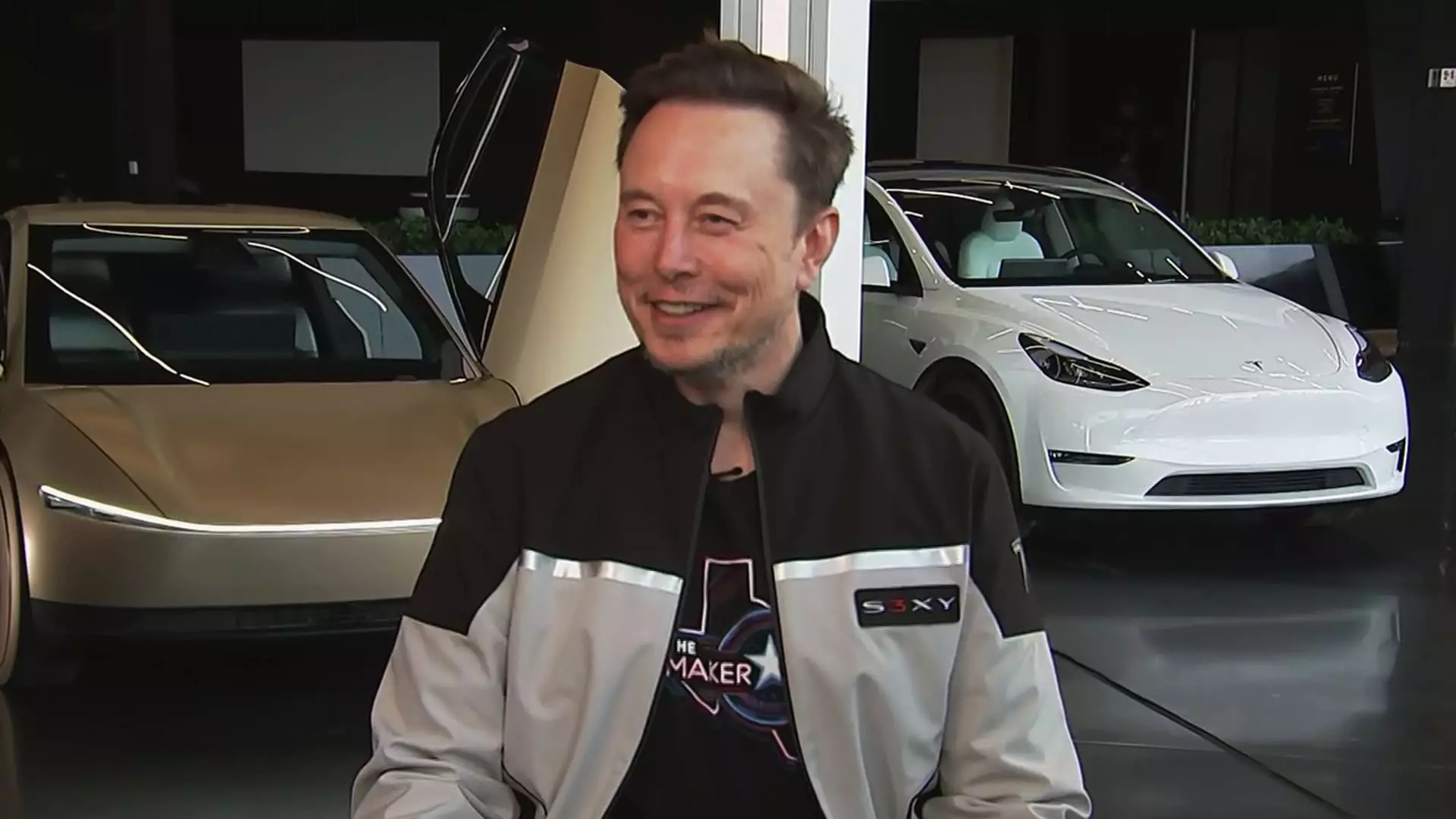In a world where technology is evolving at breakneck speed, Elon Musk stands as a titan of innovation, propelling sectors like artificial intelligence (AI) and electric vehicles into uncharted territories. Recent reports indicate that Musk’s endeavors with Tesla and his venture xAI are set to continue their reliance on semiconductor leaders like Nvidia and AMD for processing power. This move is critical, as the demand for graphic processing units (GPUs) is skyrocketing. In his characteristic forthright manner, Musk revealed that xAI has already accumulated a staggering 200,000 GPUs at its colossal facility in Memphis, Tennessee, with ambitious plans for expansion to a facility boasting one million GPUs. His assertion that chips are the limiting factor for AI development is a sentiment many in the tech universe echo, but it raises larger questions about sustainability and societal impact.
While Musk boasts of Colossus being the world’s most powerful training cluster, this achievement comes with serious implications for the surrounding community and environment. One cannot overlook the paradox of innovation at the potential cost of public health and ecological stability. In a land where technological advancement is often celebrated, we must scrutinize the hidden costs that may accompany such progress.
Environmental Rhetoric vs. Reality
Elon Musk’s endeavors have often led to grand declarations about transforming economies and pushing societal boundaries. However, the reality on the ground in Memphis tells a different story, one filled with protest and concern over emissions from natural gas-burning turbines that power xAI’s installations. Local communities already impacted by air quality are understandably alarmed as Musk’s aspirations threaten to further exacerbate health risks: nitrogen oxides—byproducts of these emissions—are directly linked to respiratory diseases.
Despite Musk’s claims of fostering a high-tech manufacturing hub, the narrative takes a darker turn when you consider the environmental toll of these operations. Environmental advocates argue that xAI has skirted compliance with the Clean Air Act and local regulations. It raises an ethical dilemma: can we genuinely herald technological progress when it comes at a direct cost to public health? The ambition to innovate should not trample upon the fundamental right to livable air and community well-being.
The Innovation Dilemma: Sustainability at Stake
Musk’s predictions also hint at future crises: he foresees an imminent shortage of electrical resources crucial for AI’s progression, partially due to competing advancements in China. It raises a vital question: can we continue to drive forward the technological revolution without critically evaluating the sustainability of our energy sources? Musk mentions the necessity for “breakthrough innovation,” asserting that cultural attitudes toward authority in different nations affect creative advancements. He suggests that the U.S. holds an edge in innovation primarily due to a collective willingness to question established norms.
However, to genuinely realize such innovations without leaving a trail of environmental degradation, how can we recalibrate our approach to energy consumption and production? As AI grows in complexity and capability, creating substantial demand for electrical infrastructure, we are left to ponder whether our society is equipped to tackle the impending environmental crises strategically.
The Future of Tesla and xAI: Merging Visions or Divided Paths?
Although speculation about a merger between Tesla and xAI may excite fanatics of Musk’s business ecosystem—intertwining electricity and cutting-edge technology—it acutely highlights the ethical distribution of resources and responsibilities. For now, Musk assures us that such a merger is not on the horizon. However, with xAI planning to spend significant amounts on Tesla’s Megapacks, the lines between these entities are inevitably blurring.
In an ecosystem driven by efficiency and technology, it is vital to maintain a balance between unyielding ambition and the pressing realities that come with it. Each step forward in AI and electric vehicles must account for more than mere profit margins; it should prioritize societal welfare and ecological integrity.
The conversation surrounding Musk, Tesla, and xAI serves as a poignant reminder of the paradox we face: no technological triumph is worth celebrating if it erodes our health and environment in the process.


Leave a Reply